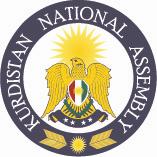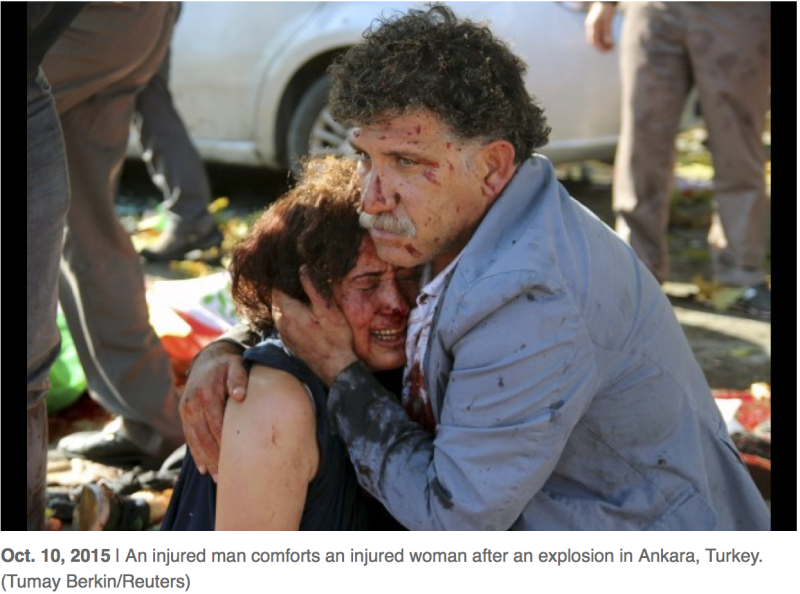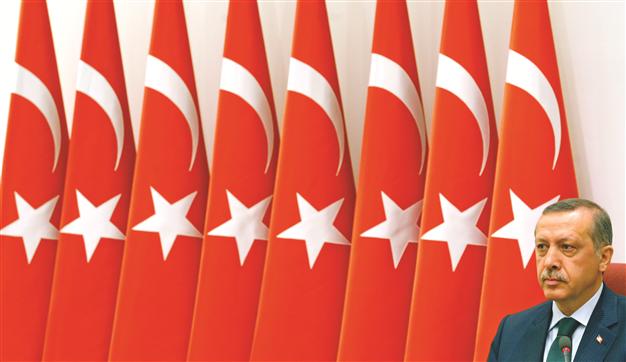Will Syria’s Kurds join with Israel and the U.S.?
 Sherkoh Abbas , President of the Kurdistan National Assembly of Syria (KURDNAS), raised in a recent Jns.com article the tantalizing prospect of a Kurdish- Israel- US Alliance to complete the work of destroying the Islamic State, “Are Syrian Kurds the missing ingredient in the West’s recipe to defeat Islamic State?” The thoughts expressed in this article reflect a recent conversation the author held with Sherkoh Abbas and Dr. Mordechai Nisan, author of Minorities in the Middle East: A History of Struggle and Self-Expression.
Sherkoh Abbas , President of the Kurdistan National Assembly of Syria (KURDNAS), raised in a recent Jns.com article the tantalizing prospect of a Kurdish- Israel- US Alliance to complete the work of destroying the Islamic State, “Are Syrian Kurds the missing ingredient in the West’s recipe to defeat Islamic State?” The thoughts expressed in this article reflect a recent conversation the author held with Sherkoh Abbas and Dr. Mordechai Nisan, author of Minorities in the Middle East: A History of Struggle and Self-Expression.
The Kurds have earned political and military capital in both Iraq and Syria as the most effective boots on the ground combating the extremist Salafism of the Islamic State. This largest non Arab ethnic group in the Middle East has long been denied the promised statehood at the Versailles conference of 1919 that ended the First World War and the Lausanne Treaty of 1923 that established the modern Republic of Turkey.
Nevertheless, the Kurds have been resilient despite numerous tragic setbacks in their history over the past century. The establishment of a no fly zone in northern Iraq under US auspices led to the creation the Kurdish Regional Government (KRG) and its much praised fighting force, the Peshmerga.
Further, it demonstrated the capabilities of the Kurds to govern themselves, overcoming internal differences and external geo- political threats from a hegemonic Iran and the Ba’athist regime of the late Saddam Hussein. Having vast energy resources helped to fuel the KRG’s development. KRG’s Peshmerga exemplary role in the current battle to retake Mosul from the Islamic State, in coordination with Iraqi national security and US forces, demonstrated its proficiency. Its humanity was demonstrated providing safe havens for Yazidis, Chaldean Christians and other ethnic non Muslim minorities that brought the KRG global recognition and respect.
On the surface the situation in Syrian Kurdistan, while complicated, has the potential for fostering the development of an autonomous Kurdish region extending across northern Syria from the KRG frontier to the Mediterranean, despite the objections of Erdogan’s Turkey.
We only have to look at recent actions by both Russia and the US. Russia and the YPG concluded an arrangement potentially protecting the Kurdish enclave of Afrin in Northwest Syria. Further, Russian meetings with Syrian Kurdish representatives in Moscow have evinced Kremlin interest in a federalized Syria in any agreement to end the seven year civil war with the Assad regime. After WWII, the Russians established a short-lived Kurdish Republic in Mahabad, Iran. US Army Brig. General (ret.) Ernie Audino in our December 2015 New English Review interview, “No War Against ISIS Without the Kurds”, noted that history:
The well-educated and well-respected Qazi Muhammad was elected to serve as president of the Mahabad Republic, history’s first and only sovereign, Kurdish state. Knowing he needed a capable army to protect the state he requested help from the great Kurdish nationalist, Mustafa Barzani, who showed up with 5,000 of his peshmerga. During this period, a son was born to Barzani who named him, Masud. That son is now Masud Barzani, the current President of the Kurdistan Regional Government (KRG) in northern Iraq.
The U.S. has acted as an umpire between Turkish forces of President Erdogan and Islamist Sunni opposition militia from entering Manbij, liberated by the YPG on the west bank of the Euphrates River.
Moreover, the US sent a message to Ankara that it was backing the YPG led Syrian Democratic Force in the battle to retake the Islamic State administrative capital of Raqqa. The Pentagon has dispatched a US Marine artillery unit. It also alerted a reinforced brigade of the 82nd Airborne Division for possible deployment in Syria.
On the political side of the Syrian Kurdish conundrum there is the daunting task of unifying the tribes, political parties, and the Kurdish National Council.
As Sherkoh Abbas of KURDNAS has pointed out that will require the delinking of the YPG/PYD leadership from outreach and involvement with the PKK, the Assad regime, Iran’s Qods Force, and its proxy, the Iraqi Hashd Shiite Popular Mobilization Force militia. There are indications that the YPG/PYD might consider doing this if there were US, Russian and potentially, Israeli auspices.
Israeli PM Netanyahu, a year and a half ago, issued a statement supporting the establishment of an independent Kurdish state in the region; welcomed by the Kurdish communities.
The benefits would include having a reliable ally in a post Assad Syria with both political and military capacities and a secure source of oil to meet the Jewish nation’s growing domestic and regional demand.
Israel has to take an important step to achieve these desirable results. It has to reach out to both the Syrian Kurds and the Trump Administration to recognize the significant Kurdish role in the final destruction of the Islamic State threatening the security of Israel’s northern Golan frontier.
If that succeeds then both the US and Israel would have an important stable alliance with the largest non Arab ethnic polity in the troubled Middle East. With the defeat of the Islamic State, that would turn attention to reining in the threat posed by a hegemonic Iran. With the possibility of a triple entente composed of both Iraqi and Syrian Kurdistans, Israel and the US, it raises the future prospect of fostering regime change in Tehran giving rise to the aspirations for autonomy of minorities in Iran- the Kurds, Azeri, Ahwaz and Baluch.
EDITORS NOTE: This column originally appeared in the New English Review.



 The Washington Post (WaPo) report described the grisly and chaotic scene following the bombings, “
The Washington Post (WaPo) report described the grisly and chaotic scene following the bombings, “